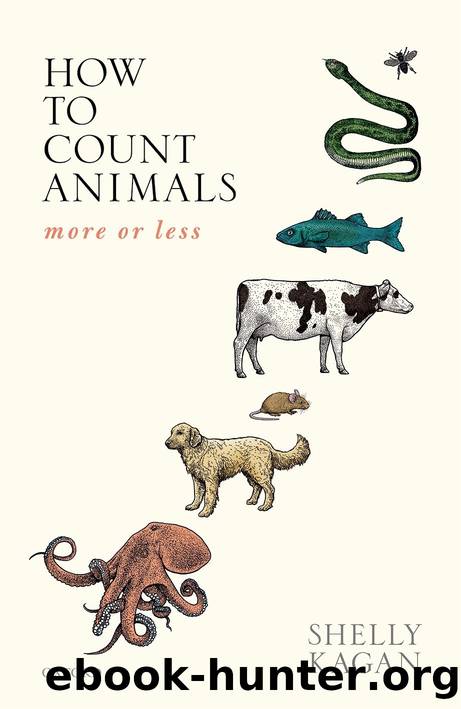How to Count Animals, more or less by Shelly Kagan

Author:Shelly Kagan [Kagan, Shelly]
Language: eng
Format: epub
ISBN: 9780192565181
Publisher: Oxford University Press
Published: 2019-03-08T00:00:00+00:00
6.3 Marginal Cases
The most commonly discussed objection to adopting a hierarchical approach doesn’t so much concern superior beings but something more like the opposite. It is a familiar and heartbreaking fact that some humans are so severely impaired that their cognitive capacities fall short, sometimes staggeringly short, of those of typical adult humans. There are, for example, grown human beings lacking self-awareness or a developed sense of time, with only minimal memory and little or no ability to make and execute plans. Although they are conscious, and able to feel pleasure and pain, these are human beings who are so cognitively impaired that they lack the capacities necessary for being a person. They are the cognitive and emotional peers of animals, not normal adult humans. Yet if, as I have argued, an individual’s moral status is a function of their psychological capacities, then it seems to follow that such impaired humans will have to be assigned a moral status that falls short of our own. If people have a status of 1, then these severely impaired humans will have statuses that are substantially less than 1. And that is an implication of hierarchy that many take to be troubling indeed—enough so, in fact, that many will conclude that it gives us decisive reason to reject a hierarchical approach of the sort I’ve been describing.
The idea that hierarchy’s implications for the severely impaired provide reason to reject such an approach is sometimes called the argument from marginal cases. The “marginal cases” in question are, of course, the severely impaired humans who, it might be suggested, form a kind of intermediate group between animals and ordinary adult humans. Thinking about this intermediate group, it is said, allows us to see that the only morally acceptable view is a unitarian one; hierarchy must be rejected.
The basic argument goes like this: On the one hand, it is morally unacceptable to treat impaired humans worse than ordinary humans. But on the other hand, there are no morally relevant differences between impaired humans and animals. Accordingly, it must also be morally unacceptable to treat animals worse than ordinary humans. Thus, by thinking about marginal cases—severely impaired humans—we can see the necessity of embracing unitarianism, since a hierarchical approach will inevitably force us to the unacceptable conclusion that it is morally permissible to treat impaired humans badly.
Presumably, a parallel argument could be constructed about impaired animals as well. Thus, for example, a severely impaired wolf, say, might be the psychological peer of a snake. Conceivably, then, some might want to argue that since it is morally unacceptable to treat impaired wolves worse than ordinary wolves, and since there are no morally relevant differences between impaired wolves and snakes, it follows that it is morally unacceptable to treat snakes worse than wolves. Generalizing from this example, they would then conclude that any hierarchical view that assigns lower statuses to some animals than to others must be mistaken.
So an argument from marginal cases need not focus on impaired humans.
Download
This site does not store any files on its server. We only index and link to content provided by other sites. Please contact the content providers to delete copyright contents if any and email us, we'll remove relevant links or contents immediately.
The Lonely City by Olivia Laing(4539)
Animal Frequency by Melissa Alvarez(4126)
All Creatures Great and Small by James Herriot(3951)
Walking by Henry David Thoreau(3658)
Exit West by Mohsin Hamid(3610)
Origin Story: A Big History of Everything by David Christian(3449)
COSMOS by Carl Sagan(3313)
How to Read Water: Clues and Patterns from Puddles to the Sea (Natural Navigation) by Tristan Gooley(3210)
How to Do Nothing by Jenny Odell(3079)
The Inner Life of Animals by Peter Wohlleben(3074)
Hedgerow by John Wright(3064)
How to Read Nature by Tristan Gooley(3048)
Project Animal Farm: An Accidental Journey into the Secret World of Farming and the Truth About Our Food by Sonia Faruqi(2986)
Origin Story by David Christian(2963)
Water by Ian Miller(2934)
A Forest Journey by John Perlin(2886)
The Plant Messiah by Carlos Magdalena(2732)
A Wilder Time by William E. Glassley(2660)
Forests: A Very Short Introduction by Jaboury Ghazoul(2651)
